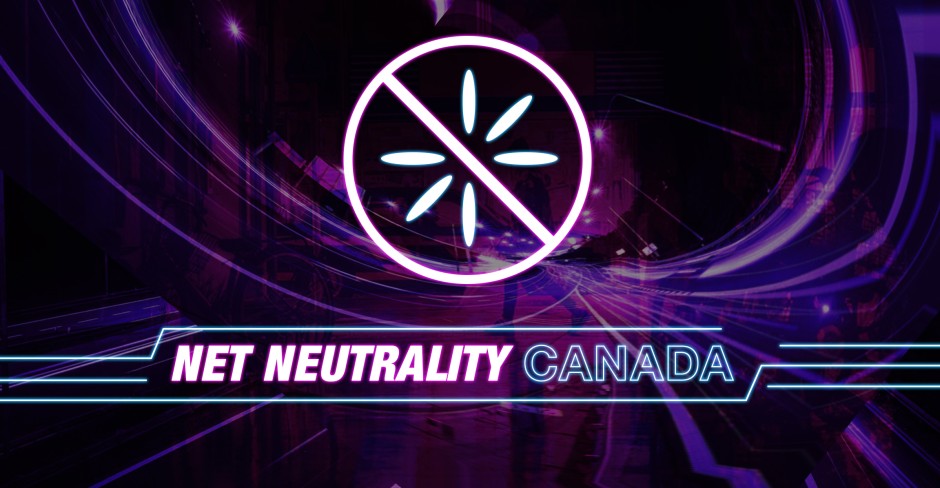Why is CRTC chair repeating Big Telecom’s talking points against net neutrality?
It’s a problem when the CRTC chair uses industry talking points when calling for greater “flexibility” for Net Neutrality. Internet users in Canada can’t let this fly.
This article by our Rodrigo Samayoa was originally published in Rabble magazine
Flexibility, innovation, self-driving vehicles, telehealth, 5G.
What do all of these things have in common? They are part of the constantly repeated talking points of Big Telecom against net neutrality.
For years, Big Telecom has been telling us that the internet requires greater flexibility to innovate and invest in the new 5G networks that will allow us to safely ride self-driving vehicles and use remote health-care apps.
We have heard this from Verizon, AT&T, Bell, Rogers and Ajit Pai, the chairman of the U.S. Federal Communications Commission. But none of that is surprising, is it?
Of course they want greater flexibility. Wouldn't they love to charge you extra to hook up your car to the 5G network or charge insurance companies more for remote health care?
What is more concerning, however, is hearing these same lines -- almost word for word -- from Ian Scott, chair of the Canadian Radio-television and Telecommunications Commission (CRTC), the agency tasked with regulating the internet in Canada.
Back in November he said the following to an audience at a yearly telecom conference:
"The Telecommunications Act provides the CRTC with the tools and flexibility to establish and enforce a net neutrality framework. The framework we have built over the past 10 years will likely be tested as needs and technology continue to evolve. There may indeed be situations relating to public safety or security, telemedicine or self-driving cars where a certain flexibility will be required and should therefore be maintained in the legislation."
Sure, these words sound friendly and innocuous. Who doesn't want some flexibility in net neutrality if it means "public safety or security?"
But we can't be fooled. These are the exact same talking points we've heard over and over from Internet Service Providers (ISPs) who want to dictate what you see online and for what price.
Canada is currently undergoing a review of the Broadcasting and Telecommunications Acts, which regulate the internet, and having the CRTC chair repeat Big Telecom's talking points verbatim is not comforting.
If Canada is to remain at the forefront of innovation and freedom, we need a robust net neutrality framework that doesn't benefit those with deep pockets and vested interests. How could a streaming startup or non-profit news service compete with the likes of Netflix and Google News in a world where your access to broadband is determined by how much you can pay?
For that matter, what guarantees are there that broadband access to telehealth apps won't be determined by how much you can pay?
In the United States, evidence of throttling by ISPs is already evident, even when it comes to first responders. Just last year Verizon throttled the "unlimited" internet connection of a California fire department in the middle of a catastrophic wildfire.
Is that the flexibility we need for net neutrality?
In the United States, these same arguments were used to repeal net neutrality, despite the mounting evidence that net neutrality doesn't hamper innovation. In Canada, the Big Three telecom players are trying to do the same.
That's why it's up to all internet users in Canada to make sure Ian Scott and Navdeep Bains, the minister of Innovation, Science and Economic Development, know that net neutrality is as Canadian as maple syrup and frost on your windshield.
Already, close to 15,000 people have sent messages to Minister Bains calling on him to stand up for net neutrality. This is especially important as the government reviews the Broadcasting and Telecommunications Acts.



 Take action now!
Take action now!
 Sign up to be in the loop
Sign up to be in the loop
 Donate to support our work
Donate to support our work